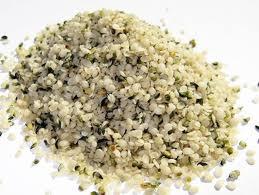 Hemp Seed Protein will supply your diet with a clean, plant-based source of essential fatty acids, antioxidants, vitamins, minerals, fiber, chlorophyll and a complete, balanced, gluten-free source of essential amino acids.
Hemp Seed Protein will supply your diet with a clean, plant-based source of essential fatty acids, antioxidants, vitamins, minerals, fiber, chlorophyll and a complete, balanced, gluten-free source of essential amino acids.
Many plant proteins are labelled “incomplete” proteins as a result of the low amounts of one or more of the nine essential amino acids. Truth be told, the “incomplete” label is somewhat misleading as all plant proteins do contain each of the essential amino acids. But in most cases (e.g. grains, legumes), levels of one or more amino acids are insufficient for human needs. However, hemp protein supplies enough of each of the essential amino acids to contribute strongly to your body’s daily protein requirement. In fact, an important aspect of hemp protein is that it is a quality source of the amino acids arginine and histidine, both of which are important for growth during childhood, and of the sulphur-containing amino acids methionine and cysteine, both of which are needed in the production of vital enzymes. Hemp protein also contains relatively high levels of the branched-chain amino acids that are crucial in the repair and growth of lean body mass, making a hemp protein shake after a workout a worthwhile investment.
Almost two-thirds of hemp protein is made up of edestin, a globulin protein found only in hemp seeds. This makes hemp the superior source for this protein in the plant kingdom. Edestin is a type of plant protein that is similar to protein found in the human body, and thus is perfectly suited to aid in meeting the body’s cellular needs such as DNA repair. Since much of hemp’s protein resembles that found in human blood, hemp protein is very easily digested and assimilated. In addition, another one-third of hemp’s protein is albumin, another high quality globulin protein also found in egg whites.
When purchasing a hemp protein powder you should be looking for a brand that supplies at least 50% protein by weight, supplying 15 grams of protein per 30 gram serving.
While hemp protein powder may contain more total fat than many other protein powders available today, it should be stressed that almost all of this fat comes from the essential polyunsaturated fatty acids omega-6 and omega-3. Hemp is recognized by the World Health Organization as having what is considered to be an optimal three-to-one balance of omega-6 to omega-3 essential fatty acids. It is this ratio that is believed to be ideal in promoting long-term well-being by decreasing the likelihood of developing heart disease, diabetes and depression.
Importantly, the fat present in hemp is also one of the few food sources of the fatty acid known as gamma-linolenic acid (GLA). GLA is showing promise in helping the fight against chronic diseases.
Hemp Protein Powder contains no additives or preservatives. While many protein powders use artificial flavoring, Hemp Protein Powder’s natural nutty flavor is all the flavor needed.
Hemp versus Soy
In the plant kingdom hemp is second only to soy in protein content. But it has several advantages over the soybean.
Unlike Hemp Protein Powder, many soy protein isolate powders that are not labelled organic are often processed with hexane, a petroleum solvent that has adverse impacts on the environment and potentially human health. The resulting hexane-processed soy is utilized in many soy protein powders, cereals and bars. Hemp protein Powder produced using only expeller (cold) pressed techniques does not involve the use of hexane in the production process. It is this same technique that ensures valuable vitamins and minerals are not destroyed during processing.
Soy protein contains oligosaccharides that can cause stomach upset and gas in some individuals. Hemp Protein Powder is free of this irritant and there are no known allergens present in Hemp Protein Powder. The addition of sugar to many soy protein products is also a concern for our expanding waistlines.
Perhaps the most important difference, the non-organic soybeans used in many soy protein powders are often derived from genetically modified soybeans. Hemp is never genetically modified. In addition, hemp foods have low environmental impact because hemp doesn’t require Herbicides or Pesticides to grow.
